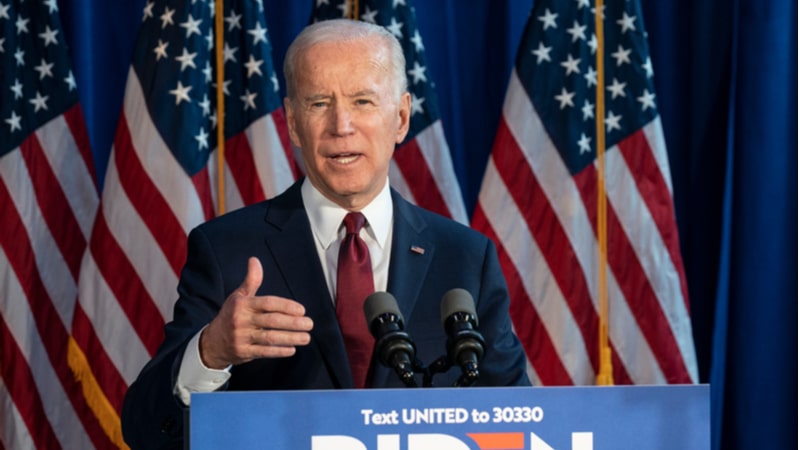
An executive order to be signed by President Biden today will order Federal agencies to conduct year-long reviews of their supply chain and industrial base risks, with the defense industrial base (DIB) and information and communications technology (ICT) industrial base among six key sectors identified in the order.
Beyond the DIB and ICT industrial bases, the other key sectors in the order are the public health and biological preparedness industrial base; the energy sector industrial base; the transportation industrial base; and supply chains for agricultural commodities and food production.
In addition to those six areas, the White House order also sets in motion separate 100-day reviews across Federal agencies to address supply chain vulnerabilities in four “key product” areas:
- Pharmaceuticals and active pharmaceutical ingredients (API). The White House said that 70 percent of API “production facilitators” that supply the U.S. have moved offshore in recent decades and that the review will complement “ongoing work to secure supply chains needed to combat” the coronavirus pandemic;
- Critical minerals including rare earth minerals used in defense and technology applications;
- Semiconductors and related advanced semiconductor packaging; and
- Large-capacity batteries used in electric vehicles.
Speaking of the one-year reviews that include DIB and ICT supply chain security, the White House said that Federal agencies will identify critical goods and materials within supply chains, manufacturing and other capabilities needed to produce the materials, and “vulnerabilities created by failure to develop domestic capabilities.” Agencies will also report on the availability of substitute or alternative sources for critical goods, the state of workforce skills, and gaps for all sectors.
The product of the Federal agency reviews will be “specific policy recommendations to address risks, as well as proposals for new research and development activities,” the White House said, adding that the reviews will be aided by consultations with state, local, and tribal governments, academia, and the private sector.
The White House said the government “will commit to a regular, ongoing process of reviewing supply chain resilience, including a quadrennial review process.”
“The E.O. will build on bipartisan Congressional action and leadership on this issue, and the Administration will remain in close touch with Congress to solicit recommendations during the review,” the White House said.
The Biden administration also said the review will “identify opportunities to implement policies to secure supply chains that grow the American economy, increase wages, benefit small businesses and historically disadvantaged communities, strengthen pandemic and biopreparedness, support the fight against global climate change, and maintain America’s technological leadership in key sectors.”
In ordering the supply chain reviews, the White House noted shortages of personal protective equipment (PPE) for healthcare workers over the past year, and shortages of automotive semiconductor chips.
“While we cannot predict what crisis will hit us, we should have the capacity to respond quickly in the face of challenges,” the White House said. “The United States must ensure that production shortages, trade disruptions, natural disasters and potential action by foreign competitors and adversaries never leave the United States vulnerable again.”
